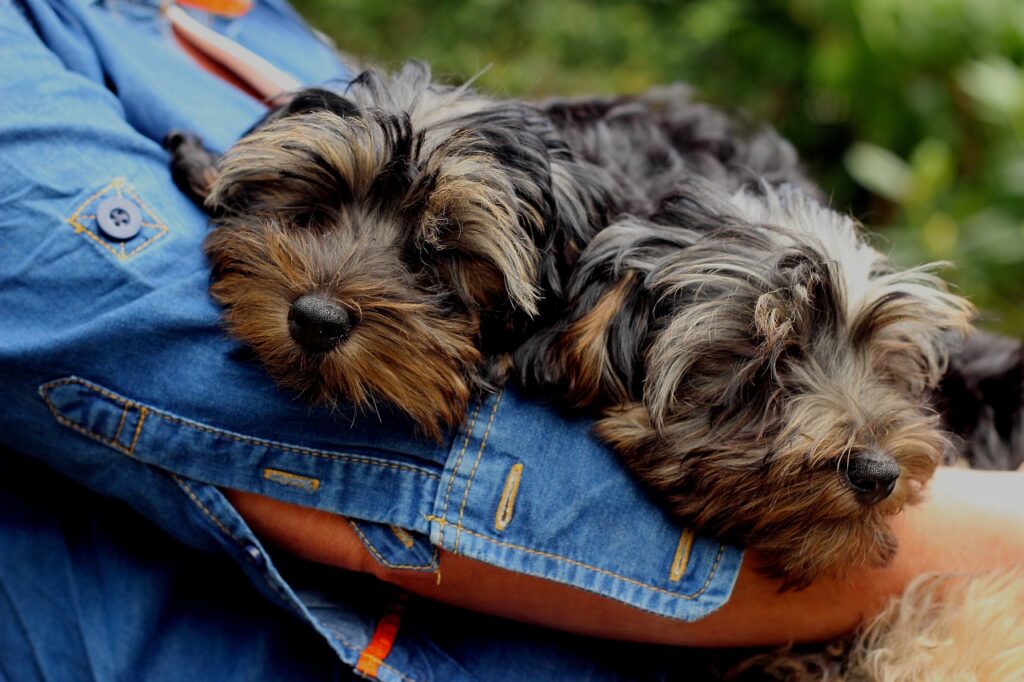Can you imagine a day when your faithful and energetic canine companion suddenly seems to have more energy than usual, but in a way that seems off-kilter? Well, it may not be just a “dog day” after all. It could be something more serious, like hyperthyroidism. But don’t fret, we’ve got the lowdown for you.
Table of Contents
The “What” of Hyperthyroidism
Hyperthyroidism, in layman’s terms, is like having your dog’s metabolic engine stuck on overdrive. It’s a relatively rare condition in dogs, but when it does occur, it can have significant implications for your pet’s health.

The primary culprit? An overactive thyroid gland, producing excess thyroid hormones. Think of it as a car engine redlining – it’s not a sustainable state and can lead to damage over time.
The “Why” Behind Hyperthyroidism
Why does hyperthyroidism occur in dogs? Good question! The answer is a bit complex, but let’s break it down.
- Thyroid Tumors: The primary cause of hyperthyroidism in dogs is the presence of a thyroid tumor. These tumors often produce excess thyroid hormone, leading to the symptoms of hyperthyroidism. But don’t jump to conclusions, not all tumors are cancerous.
- Dietary Factors: While less common, some research suggests that certain dietary factors may contribute to the development of hyperthyroidism.
Spotting Hyperthyroidism: Know the Signs
Imagine your furry friend as a book and the symptoms of hyperthyroidism as the story written on its pages. Would you be able to read it? Let’s delve deeper into the signs and symptoms, so you can become fluent in this critical canine language.
- Excessive Thirst and Urination
Does Fido seem to be making a beeline for his water bowl more frequently? Or perhaps you’ve noticed a sudden increase in the number of “bathroom breaks” he needs. These could be indications that his body is trying to cope with an increased metabolic rate due to hyperthyroidism. - The Paradox of Increased Appetite and Weight Loss
It’s an enigma, a contradiction in terms, if you will. Despite chowing down more food than usual, you may notice your dog losing weight. That’s because the surplus of thyroid hormones is revving up your dog’s metabolism, burning through calories at a faster rate than normal. - Hyperactivity or Restlessness
Hyperthyroidism can make your dog seem like he’s got endless energy reserves, but not in a good way. You might find him pacing around restlessly or becoming unusually hyperactive. Remember, too much of a good thing can be bad, and this symptom is a prime example. - Rapid or Irregular Heartbeat
The thyroid hormones have a significant impact on heart function. An overproduction can cause a rapid or irregular heartbeat in your dog. This symptom might not be apparent to you, but a vet can often detect it during a physical examination. - Coat Changes: Thinning or Dullness
Is your dog’s once luxurious and shiny coat now appearing thin, dull, or brittle? Hyperthyroidism might be the uninvited guest causing this unwelcome change.
Now that you’re armed with this knowledge, you’ll be better prepared to spot these symptoms. But remember, your vet is your best ally. If you notice any of these signs, don’t hesitate to schedule a check-up. Your furry friend is counting on you to be his voice and his advocate when it comes to his health.
Remember, it’s always better to be safe than sorry. If you notice any of these signs, schedule a visit with your vet.
Diagnosis: Confirming the Culprit
Now, how do we confirm if hyperthyroidism is indeed the uninvited guest at the party? Diagnosis typically involves:
- Physical Examination: Your vet will start by checking for an enlarged thyroid gland, rapid heart rate, or other physical signs.
- Blood Test: This is the clincher. A blood test can confirm high levels of thyroid hormones in your dog’s bloodstream.
Treating Hyperthyroidism: Turning Down the Heat
If hyperthyroidism is indeed the culprit, how do we turn down the heat on that overactive metabolic engine?
- Medication: Anti-thyroid medications can help regulate your dog’s thyroid hormone levels. But remember, there’s no one-size-fits-all dosage. Your vet will prescribe the right dose for your dog, and it may require adjustment over time.
- Surgery: In some cases, removing the thyroid gland may be recommended. While it sounds scary, it’s a well-established procedure.
- Dietary Management: Certain dietary changes may be beneficial, especially in dogs whose hyperthyroidism is influenced by dietary factors.
Life After Diagnosis: A Roadmap
Life after a hyperthyroidism diagnosis isn’t a dead end – it’s a new beginning. With the right treatment and care, your dog can continue to live a full, happy life.
- Regular Vet Check-ups: Routine check-ups will ensure that the treatment is working and will allow for adjustments as needed.
- Diet and Exercise: A balanced diet and regular exercise will support your dog’s overall health and wellbeing. Your vet may recommend specific dietary changes or exercise routines.
- Medication Management: If your dog is on anti-thyroid medications, you’ll need to administer them regularly. It’s important to follow your vet’s instructions to the letter.
Your Role: The Guardian
As the guardian of your dog’s health, your role is crucial. From understanding the signs to managing treatment, your attention and care can make a world of difference. Remember, a diagnosis isn’t the end of the world. It’s merely a hurdle that, with love and care, you and your furry friend can overcome together.
Key Takeaways
Let’s take a moment to paws and recap:
- Hyperthyroidism is a relatively rare but serious condition in dogs, caused by an overactive thyroid gland.
- Common signs include increased thirst, appetite, and activity, along with weight loss and coat changes.
- Diagnosis typically involves a physical examination and a blood test.
- Treatment options include medication, surgery, and dietary management, tailored to your dog’s specific needs.
- Life after diagnosis can still be full and happy, with the right care and regular check-ups.
- As the pet owner, your role is vital in managing this condition and ensuring your dog’s continued wellbeing.
Doesn’t it feel great to be informed and prepared? Now you’re not just a dog lover, but a dog expert too! So, keep showing your furry friend the love and care they deserve. After all, every dog has its day, and with your help, your canine companion can have many more happy days ahead.


Dennis and Becca, have always shared a passion for man’s best friend. As dog enthusiasts, they put together articles that inform, engage, and captivate fellow dog lovers.